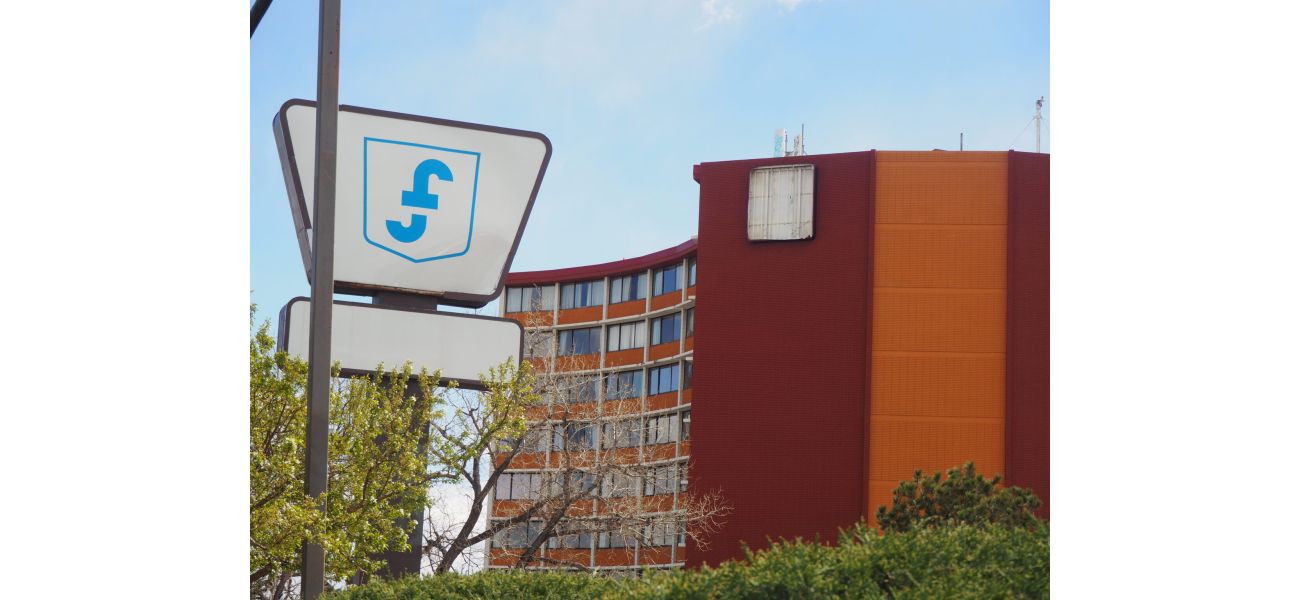Fluid Truck goes bankrupt in Denver and admits to $35M in debt.
Denver startup Fluid Truck has left two leases with court approval as it looks to be acquired by a Utah company for $10 million.
December 3rd 2024.

After obtaining approval from a judge, struggling Denver startup Fluid Truck has made the difficult decision to let go of two leases within the city in an effort to sell itself to a company in Utah for approximately $10 million. The company has officially left its previous locations at 400 W. 48th Ave and 1441 W. 46th Ave, both situated near the intersection of Interstates 25 and 70 on the northern side of the city. The former served as an office space while the latter was a small warehouse.
According to spokeswoman Emily Allen, Fluid Truck has now transitioned to a coworking space in the RiNo neighborhood of Denver, which better suits their current needs. Fortunately, this move has not resulted in any job losses for the company's 127 employees. Allen reassures that even with the changes, the company remains stable and committed to its team.
In order to abandon the leases and personal property at these locations, Fluid Truck had to seek permission from a bankruptcy judge in Delaware. In a court filing last month, the company explained that the leases no longer provided any benefit and that abandoning them would ultimately save significant amounts of money each month. This decision was made as part of the company's efforts to restructure and overcome its financial struggles.
Fluid Truck was originally founded in Denver in 2016 under the name Fluid Market, offering an Uber-like service for renting various household items and vehicles. In 2018, the company shifted its focus solely to vehicle rentals and rebranded as Fluid Truck. Since then, it has expanded to other major cities and even partnered with Ikea. The company has also raised a substantial amount of funding, totaling at least $80 million from investors.
However, despite its initial success, Fluid Truck filed for Chapter 11 bankruptcy in October after facing losses of $18.7 million in fiscal year 2022 and $20.6 million in 2023. The company's interim CEO has attributed these struggles to a failed growth strategy and the impact of the pandemic. This has led to a severe liquidity situation for the company, prompting the decision to sell to Kingbee Rentals, a similar company based in Utah, for approximately $10 million. Currently, Fluid Truck is waiting to see if any other interested buyers emerge before asking a judge to approve the sale. A hearing is scheduled for December 13th at the U.S. Bankruptcy Court in Delaware.
Amidst all these changes, Fluid Truck has also released a comprehensive list of its assets and debts for the first time. According to a 350-page court filing, the company has $76 million in assets and $34.5 million in liabilities. Interestingly, a large portion of its assets, $54 million to be exact, are business losses that can be deducted from future taxes.
One notable location that Fluid Truck recently vacated is 400 W. 48th Ave, which has been a source of turmoil for the company in the past. The building, known as Globe4Hundred, was purchased in 2021 for $11.2 million by a local trio, including Fluid founder James Eberhard, developer Ryan Arnold, and broker Ken Gooden. Initially, Arnold was meant to manage the property while Fluid served as its anchor tenant. Over time, the company expanded its space to 52,500 square feet, out of a total of 100,000 square feet. However, when Fluid was unable to pay its rent, disagreements between the tenant and landlord arose.
The landlord accused Fluid of taking on more space than they could handle, leading to a public dispute. In a move to save the company, the landlord requested a receiver to take over the management of the property due to alleged financial difficulty and mismanagement under Eberhard's leadership. On the other hand, Fluid accused the landlord of misleading them into leasing more space by failing to disclose nearby transitional housing being built. The two parties eventually settled their differences outside of court in the spring of this year.
For more business news and updates, sign up for our Economy Now newsletter.
According to spokeswoman Emily Allen, Fluid Truck has now transitioned to a coworking space in the RiNo neighborhood of Denver, which better suits their current needs. Fortunately, this move has not resulted in any job losses for the company's 127 employees. Allen reassures that even with the changes, the company remains stable and committed to its team.
In order to abandon the leases and personal property at these locations, Fluid Truck had to seek permission from a bankruptcy judge in Delaware. In a court filing last month, the company explained that the leases no longer provided any benefit and that abandoning them would ultimately save significant amounts of money each month. This decision was made as part of the company's efforts to restructure and overcome its financial struggles.
Fluid Truck was originally founded in Denver in 2016 under the name Fluid Market, offering an Uber-like service for renting various household items and vehicles. In 2018, the company shifted its focus solely to vehicle rentals and rebranded as Fluid Truck. Since then, it has expanded to other major cities and even partnered with Ikea. The company has also raised a substantial amount of funding, totaling at least $80 million from investors.
However, despite its initial success, Fluid Truck filed for Chapter 11 bankruptcy in October after facing losses of $18.7 million in fiscal year 2022 and $20.6 million in 2023. The company's interim CEO has attributed these struggles to a failed growth strategy and the impact of the pandemic. This has led to a severe liquidity situation for the company, prompting the decision to sell to Kingbee Rentals, a similar company based in Utah, for approximately $10 million. Currently, Fluid Truck is waiting to see if any other interested buyers emerge before asking a judge to approve the sale. A hearing is scheduled for December 13th at the U.S. Bankruptcy Court in Delaware.
Amidst all these changes, Fluid Truck has also released a comprehensive list of its assets and debts for the first time. According to a 350-page court filing, the company has $76 million in assets and $34.5 million in liabilities. Interestingly, a large portion of its assets, $54 million to be exact, are business losses that can be deducted from future taxes.
One notable location that Fluid Truck recently vacated is 400 W. 48th Ave, which has been a source of turmoil for the company in the past. The building, known as Globe4Hundred, was purchased in 2021 for $11.2 million by a local trio, including Fluid founder James Eberhard, developer Ryan Arnold, and broker Ken Gooden. Initially, Arnold was meant to manage the property while Fluid served as its anchor tenant. Over time, the company expanded its space to 52,500 square feet, out of a total of 100,000 square feet. However, when Fluid was unable to pay its rent, disagreements between the tenant and landlord arose.
The landlord accused Fluid of taking on more space than they could handle, leading to a public dispute. In a move to save the company, the landlord requested a receiver to take over the management of the property due to alleged financial difficulty and mismanagement under Eberhard's leadership. On the other hand, Fluid accused the landlord of misleading them into leasing more space by failing to disclose nearby transitional housing being built. The two parties eventually settled their differences outside of court in the spring of this year.
For more business news and updates, sign up for our Economy Now newsletter.
[This article has been trending online recently and has been generated with AI. Your feed is customized.]
[Generative AI is experimental.]
0
0
Submit Comment





